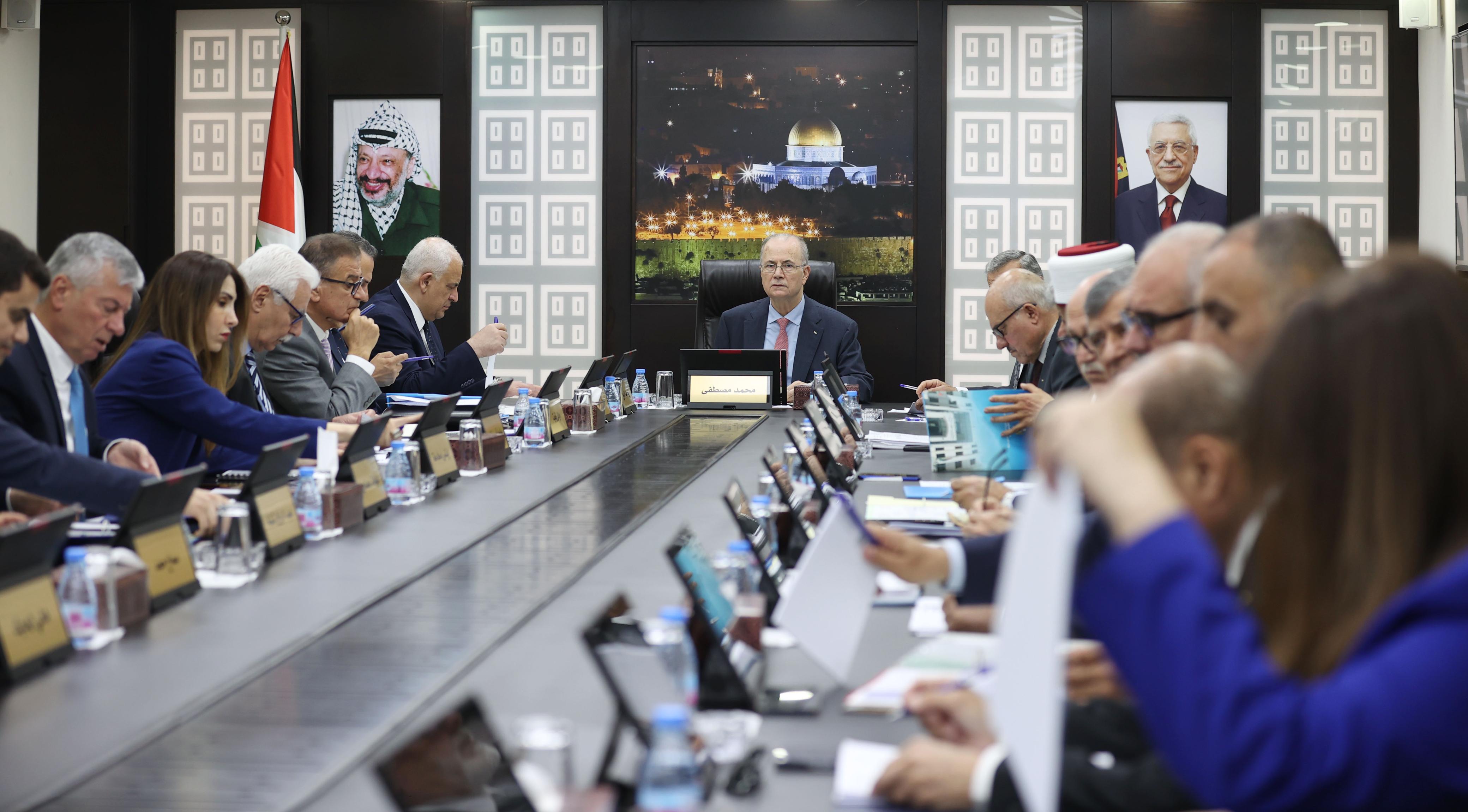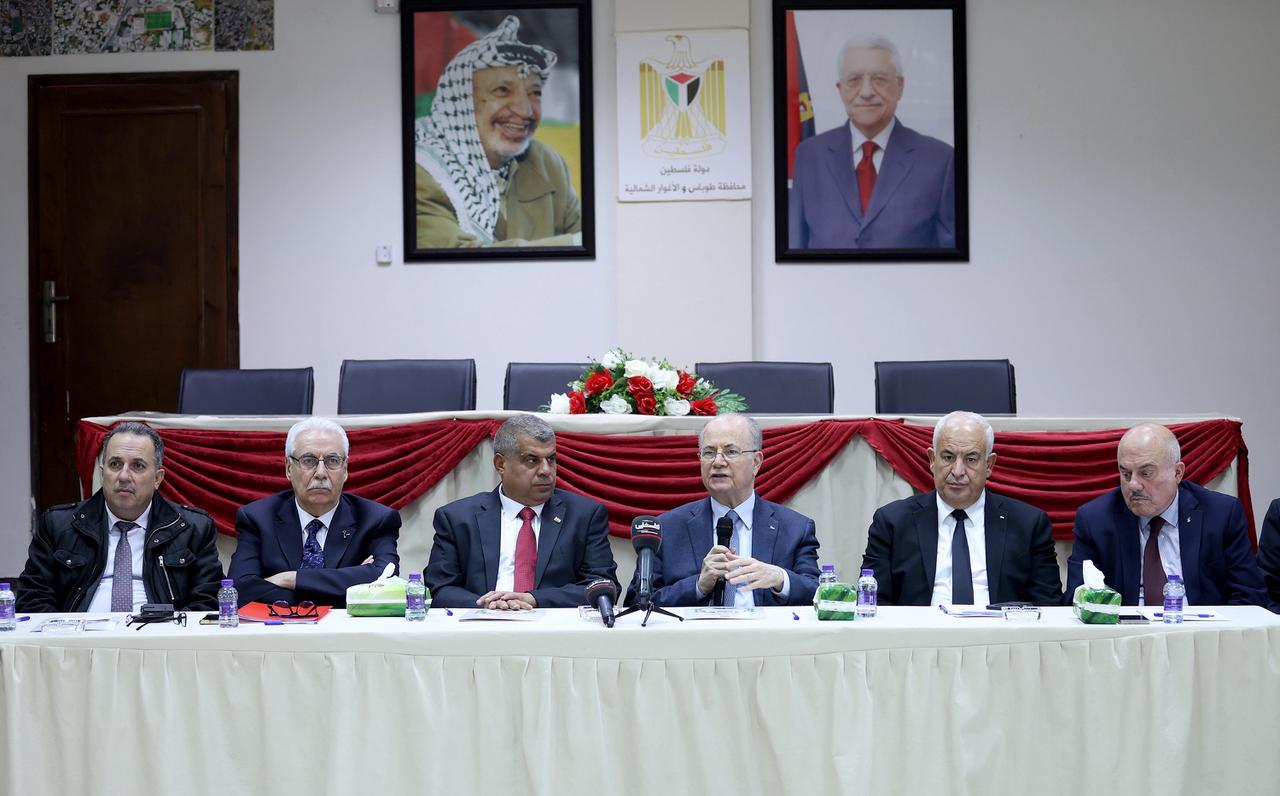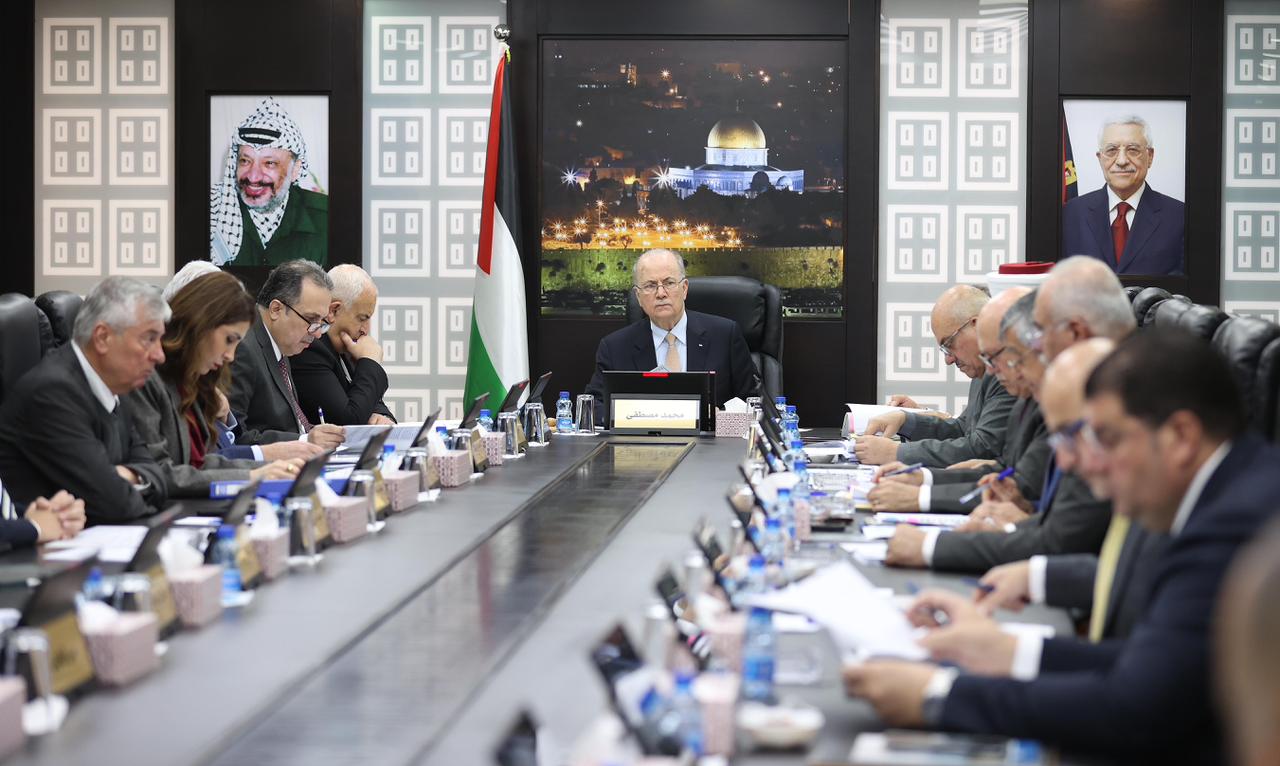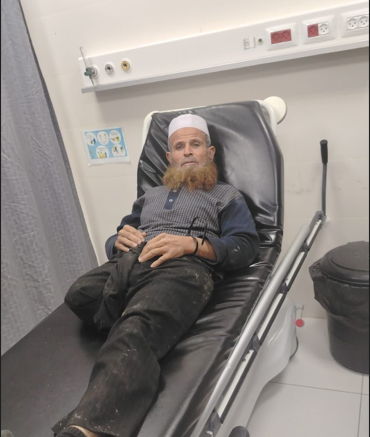RAMALLAH, Tuesday, April 23, 2024 (WAFA) – In its 4th session, convened on April 23, 2024, the Council of Ministers has approved the recommendations set forth by the Standing Ministerial Committee for Reform, thereby endorsing its prescribed tasks, action plan, and the delineated fields and sectors earmarked for reform.
The identified areas for reform encapsulate 10 overarching dimensions: the advancement of governance principles, transparency, accountability, and the combat against corruption; the enhancement of the justice sector and the fortification of the rule of law; the promotion of democracy and human rights; the augmentation of efficiency and competencies within the public sector; reforming the security sector and fostering civil peace; the enhancement of service quality, notably within healthcare and education; reforming the public finance management; the amelioration of local governance sector; the integration of digital transformation across productive and service-oriented sectors; and the revival and development of the economic sector.
Furthermore, the Council of Ministers has endorsed several measures pertaining to reform, alongside financial and administrative procedures aimed at streamlining expenditure across government departments. It has charged department heads with immediate and comprehensive implementation of these directives, without exception.
These measures encompass the regulation of public transport vehicle movement and utilization, the delineation of travel missions and government contractual agreements, and the rental of government premises. Additionally, the procedures include the cessation of new government furniture and vehicle purchase, alongside other decisions, which department heads are entrusted to oversee and enforce.
Moreover, the Council of Ministers has sanctioned that all appointments, including senior positions, shall be made based on competitive, transparent, and equitable grounds. It has also reaffirmed the implementation of the President's decree concerning halting the extension of the tenure of public service for civil servants and military personnel over 60 years of age, ambassadors over 65 years, and judges over 70 years, and halt all exemptions in this regard. Additionally, it has decided to halt all contractual arrangements with retired public servants only in exigent circumstances, and stipulated that a minimum two-year retirement period has passed for such personnel.
The Council of Ministers has further decided to establish a special committee, to be chaired by the Justice Minister, comprising representatives from pertinent government sectors and civil society representatives. This committee will be charged with the review of Law by Decree No. 10 of 2018 on Cybercrimes, with the aim of evaluating its alignment with the rights and freedoms enshrined in the Basic Law and other pertinent legislation
Additionally, the Council of Ministers has tasked the Standing Ministerial Committee for Reform with the preparation of an exhaustive report on the governance framework of the State's institutional structure. This report is expected to encompass both ministerial and non-ministerial entities within one month from the date of this decision.
Prime Minister Mustafa briefed the Cabinet members of the prevailing political situation, ongoing communications, and international endeavors aimed at achieving a ceasefire. He also highlighted relief efforts intended to aid the Palestinian people in the Gaza Strip and addressed the Israeli settlers and occupation forces’ assaults and attacks against our people in the West Bank, including Jerusalem.
On his part, the Finance Minister Omar al-Bitar presented his ministry's plan for financial reform, aimed at ensuring a more equitable distribution of available financial resources to meet the needs and priorities of our people. Meanwhile, Minister of National Economy Mohammed al-Amour also presented his ministry's plan for reform and modernization, centering on government priorities for economic recovery, reform, transparency, and governance.
Consequently, Prime Minister Mustafa has directed that these reports and plans be forwarded to the Permanent Ministerial Economic Development Committee for thorough deliberation. Additionally, he has called for the inclusion of other pertinent economic reports submitted by various ministries to formulate a comprehensive national economic plan and submit it to the Council of Ministers, all in coordination with the Ministry of Planning and International Cooperation for its consideration. This plan will delineate clear and precise objectives, establish performance indicators for government departments and put them to periodic assessments, and entail the submission of relevant legislation to the Ministry of Justice for review and prioritization,
In addition to the aforementioned decisions, relevant government head of departments have been tasked to maintain intra-department coordination regarding the private sector’s participation in relief endeavors within the southern governorates. Moreover, the Permanent Ministerial Economic Development Committee has been mandated to coordinate with pertinent government departments, mainly the Ministry of Planning and International Cooperation and the Ministry of State for Relief Affairs, to draft a comprehensive document outlining the economic losses endured by both the southern and northern governorates to address such losses in the future.
Furthermore, the committee has been tasked with formulating a vision to be proposed to the Cabinet regarding the regulation of corporate operations in the southern governorates. This proposal will outline the government's endeavors to coordinate with chambers of commerce, suppliers, and other relevant entities to prevent exploitation, mitigate price escalations, and alleviate the burdens borne by citizens, particularly in light of the challenging circumstances faced by our people in the Gaza Strip.
K.F./ M.N.













